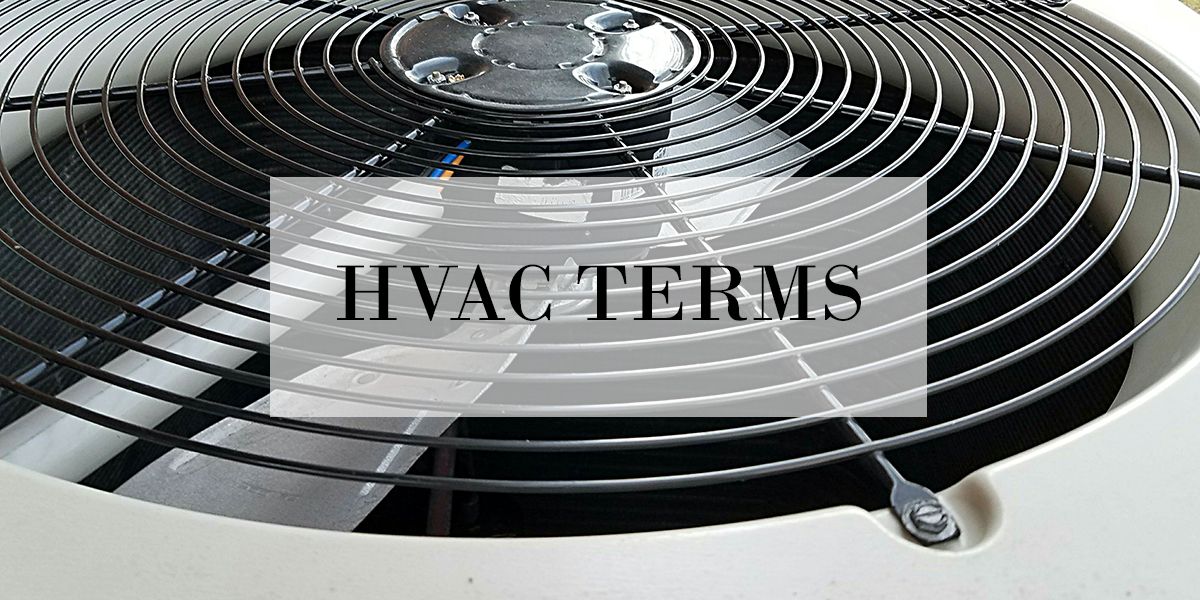
13 Basic HVAC Terms for Homeowners
If you’re a homeowner, learning the common terminology of your HVAC system will serve you well. After all, you’ll probably need to call an HVAC technician at some point to do a repair or a tune-up.
Read on to learn the most commonly discussed HVAC terms from our Eazy Breezy experts in heating and air conditioning in Tucson, AZ, and make your next HVAC consultation a breeze.
HVAC (Heating, Ventilation, and Air Conditioning)
The term HVAC covers all ventilation, air conditioner, or heat systems. For instance, central air systems, heat pumps, and boilers all fall under the HVAC umbrella.
Ductwork
Your ductwork includes the network of air ducts that distribute air throughout your home. However, not all HVAC systems depend on ductwork for air circulation. For example, a ductless or mini-split heat system relies on wall-mounted units instead.
Liquid Refrigerant
Liquid refrigerant is the chemical compound an air conditioner uses to absorb heat. Other air conditioner parts transform the liquid refrigerant to vapor, which produces an air conditioner’s cooling effect.
Indoor Air Quality (IAQ)
IAQ describes how the air affects the health of those within or around a building.
Compressor
Compressors are air conditioner components that pressurize refrigerant gas to turn it into a liquid, enabling the refrigerant to absorb heat.
Evaporator Coil
Evaporator coils make up the interior-facing part of an air conditioner that cools liquid refrigerant so it can absorb heat from your home. The evaporator coil then collects the absorbed heat and transfers it to the condenser coil.
Condenser Coil
The condenser coil comprises the exterior-facing section of an air-conditioner and releases the indoor heat collected by the evaporator coil.
Heat Pump
Your heat pump is one of the more confusing HVAC components since this device cycles both warm and cold air through a reversing valve. In winter, a heat pump absorbs heat from outside and transfers it into your home to warm it. Alternatively, a heat pump works like an air conditioner during the summer by transferring the heat inside your home outdoors.
SEER (Seasonal Energy Efficiency Ratio)
Your SEER is an energy-efficiency ratio found by dividing your unit’s total cooling output during a typical hot season by its total energy input during that same season. Most modern air conditioners have an SEER rating of 13 to 21. For example, an air conditioner with a SEER rating of 20 indicates superior energy efficiency.
Furnace
A furnace is a gas-fired heating system. This system burns gas to generate heat, then distributes the heat using a motor fan.
Filter
A filter prevents harmful air particles from entering your HVAC system. You should clean and replace your filters regularly to ensure their effectiveness.
MERV (Minimum Efficiency Reporting Values)
MERV is an air filter rating system based on a scale of 1 to 16. For example, a MERV rating of 16 indicates a high-performing filter.
ENERGY STAR®
ENERGY STAR is the Environmental Protection Agency’s (EPA’s) certification program that helps buyers select the most energy-efficient HVAC systems and appliances.
Eazy Breezy HVAC Services in Tucson, AZ
Congratulations on becoming an expert in commonly used HVAC terms. Now that you know all the terms of the trade, call one of our Eazy Breezy Heating & Cooling professionals at 520-207-0334 to learn more about AC repair services in Tucson, AZ.